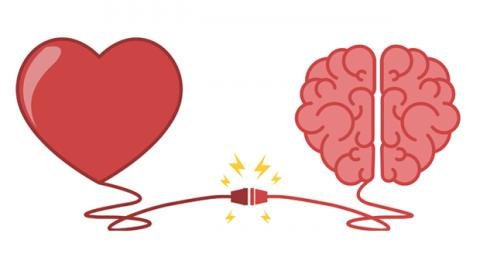Emotional Intelligence 101
The 5 Aspects:
Emotion is a wide range of observable behaviors, expressed feelings, and changes in the state of mind and body. Feelings, emotions, our likes, and dislikes, give our individual lives meaning and cause us to be happy or unhappy, satisfied or dissatisfied. Intelligence is the ability to acquire and apply knowledge and skills. Emotional Intelligence is the ability to deal with other people successfully. By understanding one's own feelings they can understand and evaluate others. According to Dr. Daniel Goleman, there are five main elements of emotional intelligence.
Self-Awareness
Self-Regulation
Motivation
Empathy
Social Skills
Self-Awareness
This is the ability to recognize and understand one's moods, motivations, and abilities. As well as understanding the effects they have on others. Goleman says to achieve a state of complete self-awareness, an individual must be able to monitor their emotional state and identify their emotions. Traits that prove an individual as emotionally mature include: confidence, the ability to laugh at one’s self and their mistakes, and the awareness of how you are perceived by others.
Example: By reading the reaction of someone else, you know how you are perceived by them.
Self-Regulation
This is the ability to control one's impulses, the ability to think before you speak/react, and the ability to express yourself appropriately. Goleman defines emotional maturity in this component as being able to take responsibility for your actions, being able to adapt to change, and the ability to respond appropriately to other people's irrational emotions or behavior.
Example: If someone is screaming at you, you know that they are not always angry at you. You have the ability to understand they may be angry at a particular situation and feel they need to take it out on someone. You do not take this personally or react in an angry manner back.
Motivation
This is having an interest in learning and self-improvement. It is having the strength to keep going when there are obstacles in life. It is setting goals and following through with them. Goleman would define an emotional mature individual in this category to have traits such as having initiative and the commitment to complete a task, and having perseverance in the face of adversity.
Example: One who chooses internal motivation driven goals instead of exterior motivation driven goals. Internal motivation driven goals are things such as volunteering to your local community to help others. Exterior motivation driven goals are things that flaunt wealth or status. This is setting goals such as having the next newest and nicest car.
Example: If a student fails a class, they see this as an opportunity to learn and retake the class without self doubt. They do not let failure get in the way of their goal.
Empathy
This is the ability to understand other people's emotions and reactions. Empathy can only be achieved if self-awareness is achieved. Goleman believes that one must be able to understand themselves before they can understand others. Emotional maturity in this category includes people having traits such as perception of others, being interested in other peoples worries and concerns, the ability to anticipate someone's emotional response to a problem or situation, and the understanding of society's norms and why people act the way they do.
Example: Being able to understand and cope with someone else's hardships or sadness. When you fully understand yourself and why you feel the things you feel, you can understand other people even if they are different from you.
Social Skills
This is the ability to pick up on jokes, sarcasm, customer service, maintaining friendships and relationships, and finding common ground with others. Goleman states that emotional maturity in this component defines someone who has good communication skills, good time management, the ability to be a leader or manage a group of people, and the ability to resolve difficult situations or conflicts using negotiation or persuasion.
Example: Someone in a "boss" position usually has a good grasp on handling all different types of personalities. If two of their employees are having a conflict, they can find common ground and resolve the issue in a civilized and fair manner.
The 5 Core Emotions:
Think of emotions like paint colors - while there is a rainbow of infinite complexity and variation, all possible colors ultimately are just combinations of the primary colors with more white or dark hue - metaphorically lightness and darkness is the intensity of emotion.
See below, there is a rainbow of emotions - some emotions are less intense (ex. frustration is a milder form of Anger) while others are more intense (ex. Rage is an extreme form of Anger). While others are combinations (ex. resentment is a combination of anger and disgust).
Important thought: Sometimes (not always!) it can be helpful to break down a big complex feeling you are having (ex. Im SO jealous right now) into its more basic parts (ex. Im jealous… and also Im kind of disgusted that this person has what I want and I think I’m more worthy of it… and also I’m sad because I really want that thing, and I’ve wanted it for a long time.)
Although there is some disagreement between researchers, there is a general consensus of at minimum 5 core emotions: Joy, Fear, Anger, Disgust, and Anger. For example, some research posits that Surprise is its own emotional circuit (aka. primary emotion). It doesn’t make sense to do a deep dive into Socio-neurobiology here, but I will mention that core Emotions are ‘hardwired’ emotional processes in the human brain. These processes are universal to our species - although expression and language for these varies widely across cultures.
3 Components of Core Emotions:
(with common examples)
Prepared by Jeffrey Hoy, MA, RCC. Informed by the works of Dr. Saul Kassin, Dr. Daniel Goleman, Dr. Les Greenburg, and Dr. Adele LaFrance.



